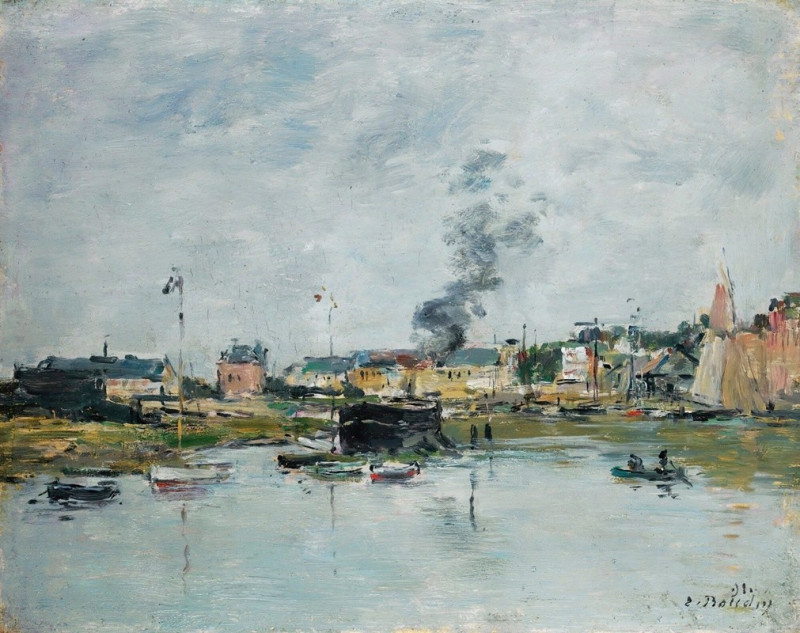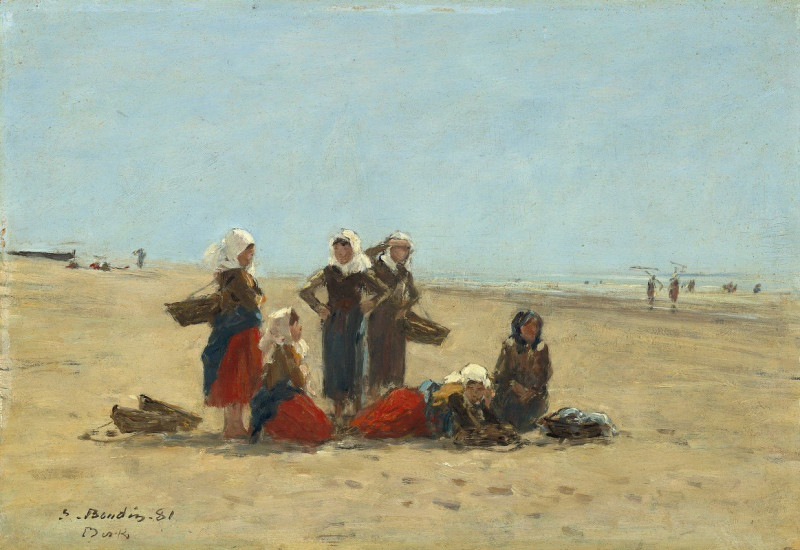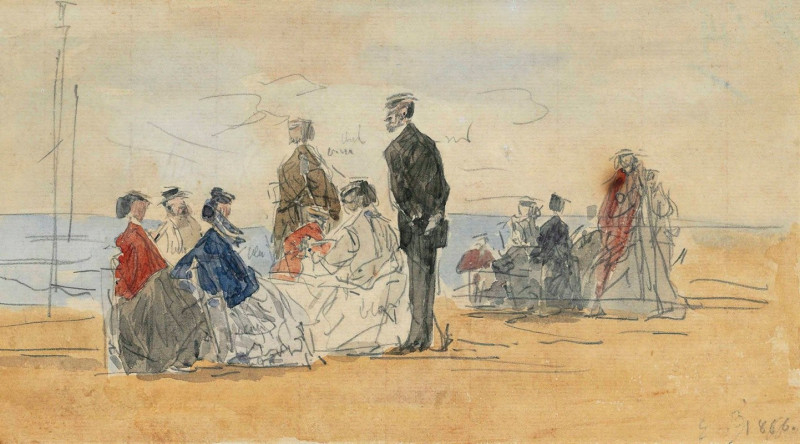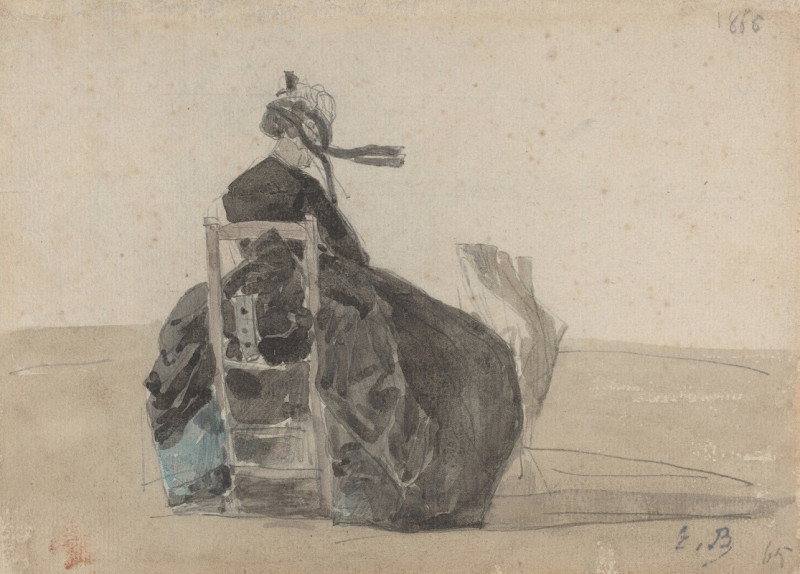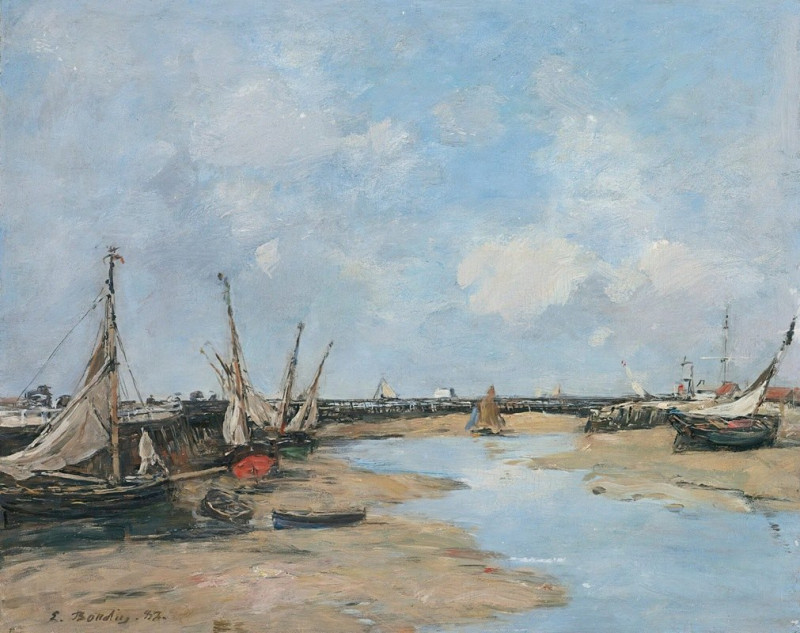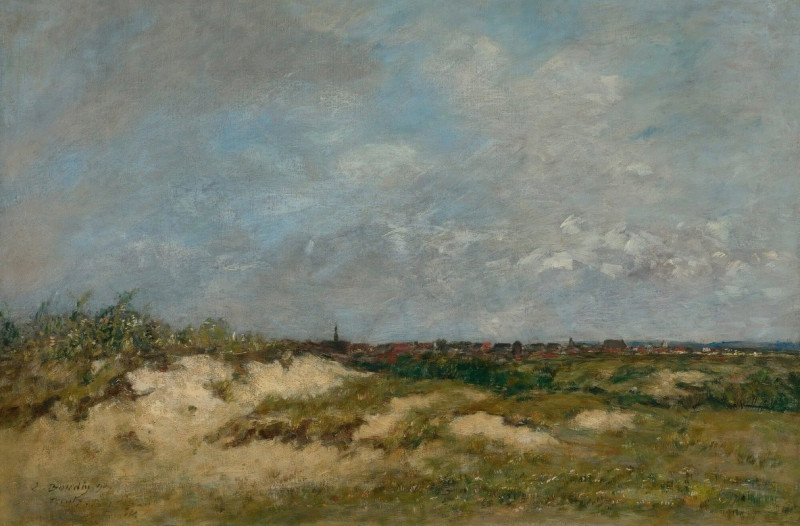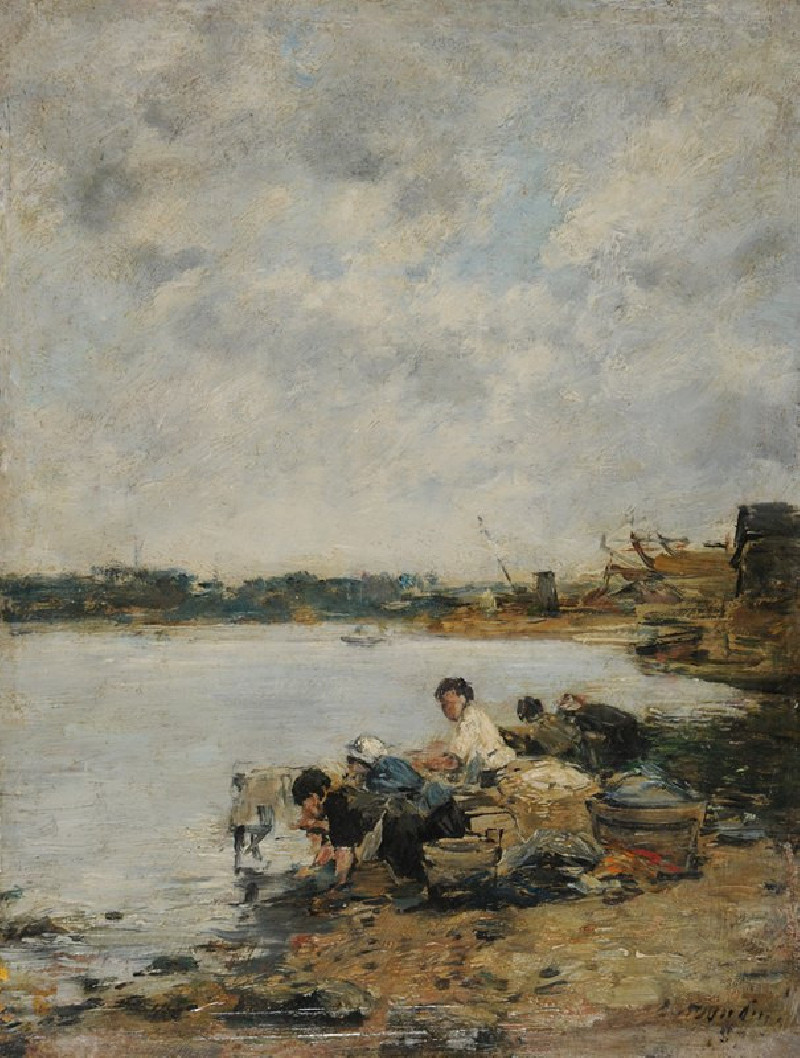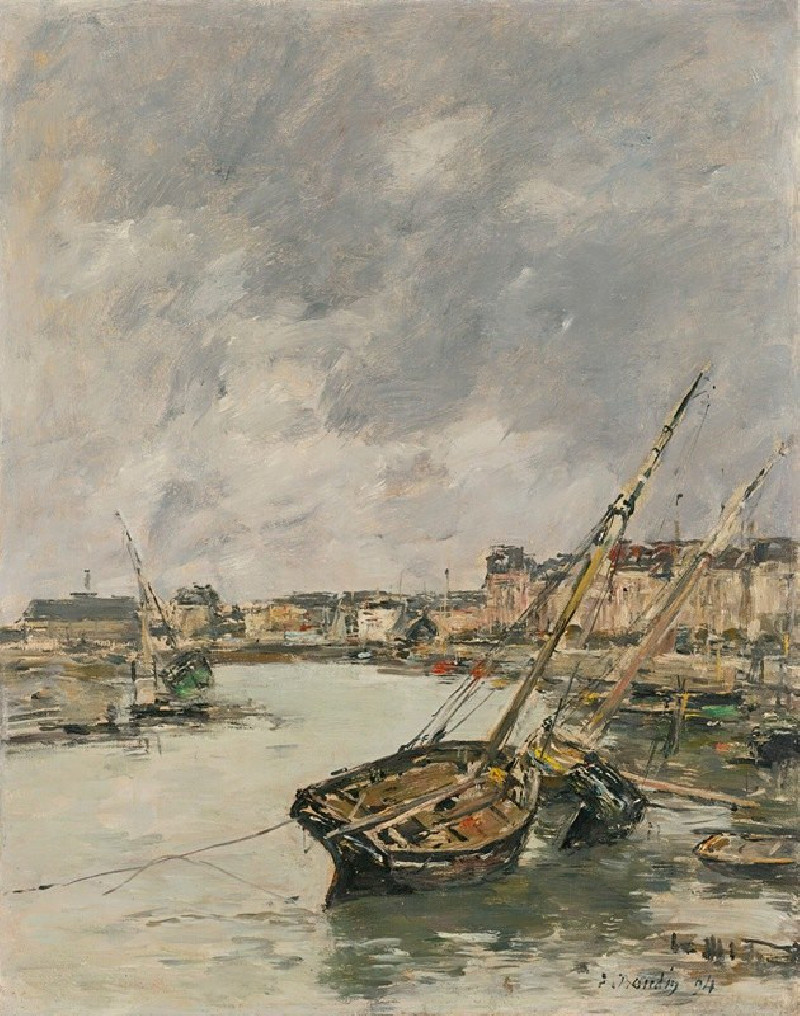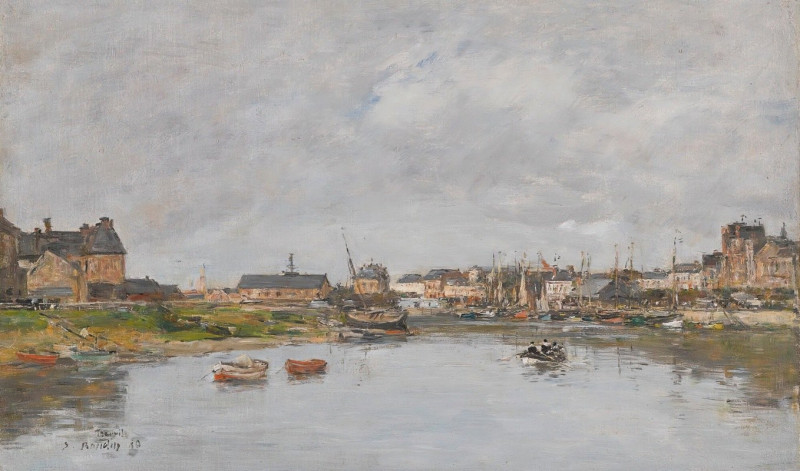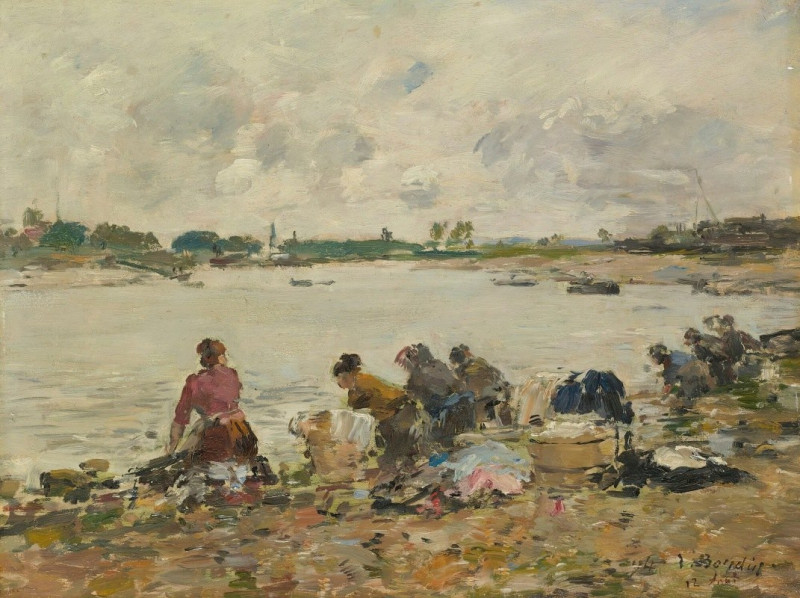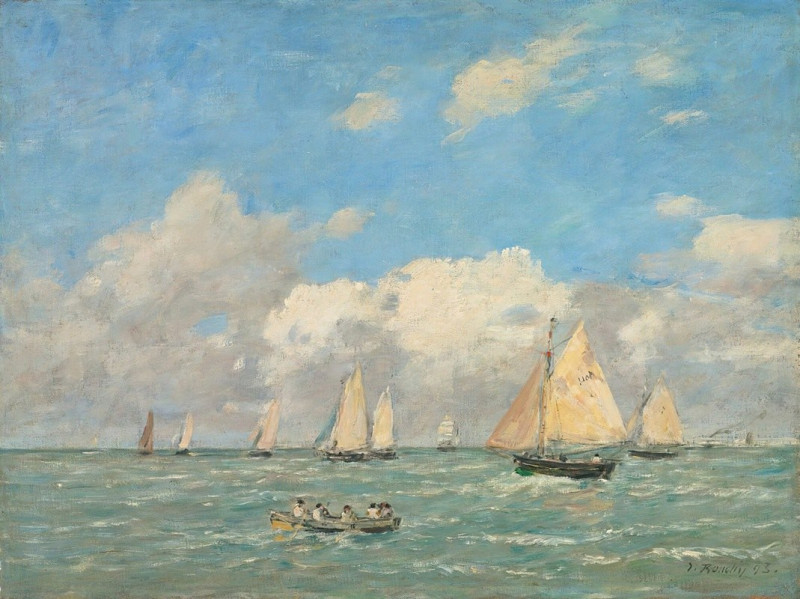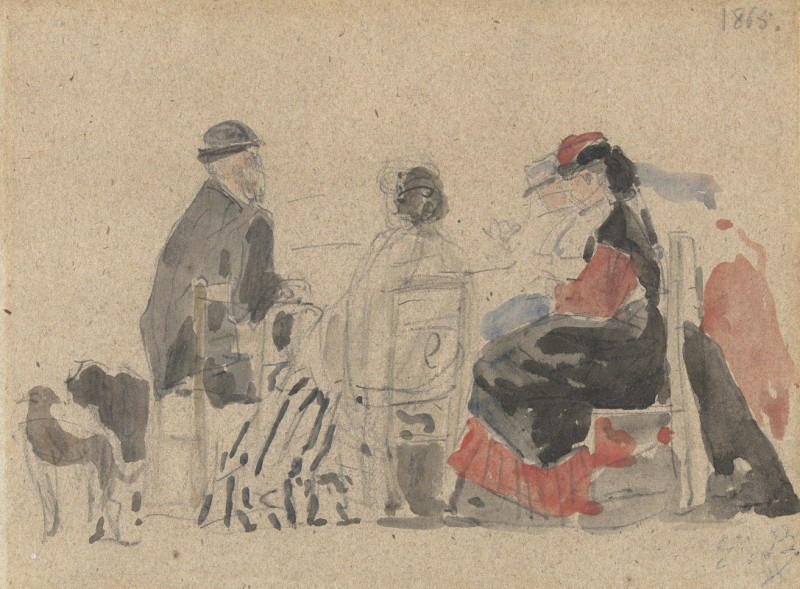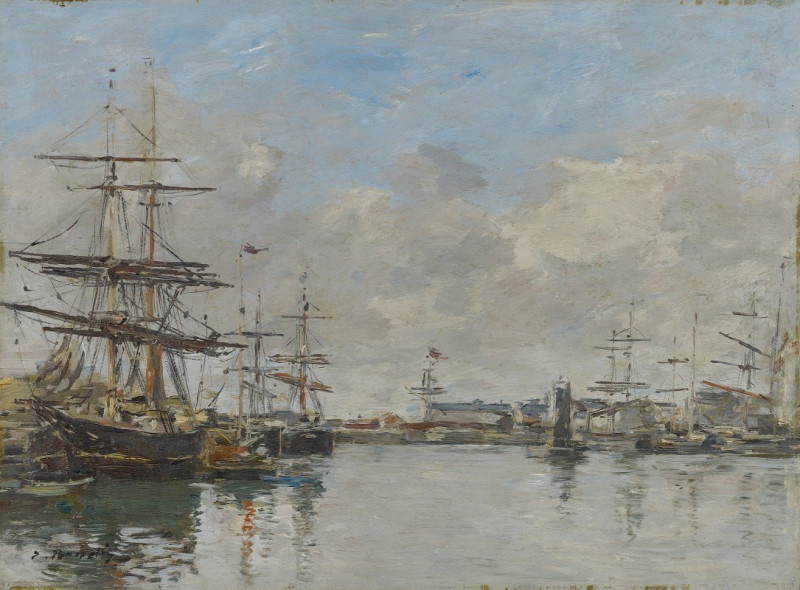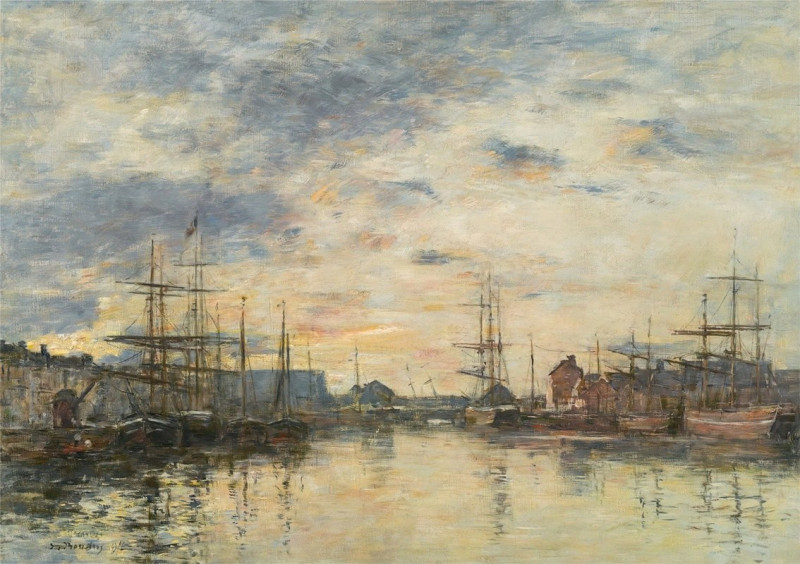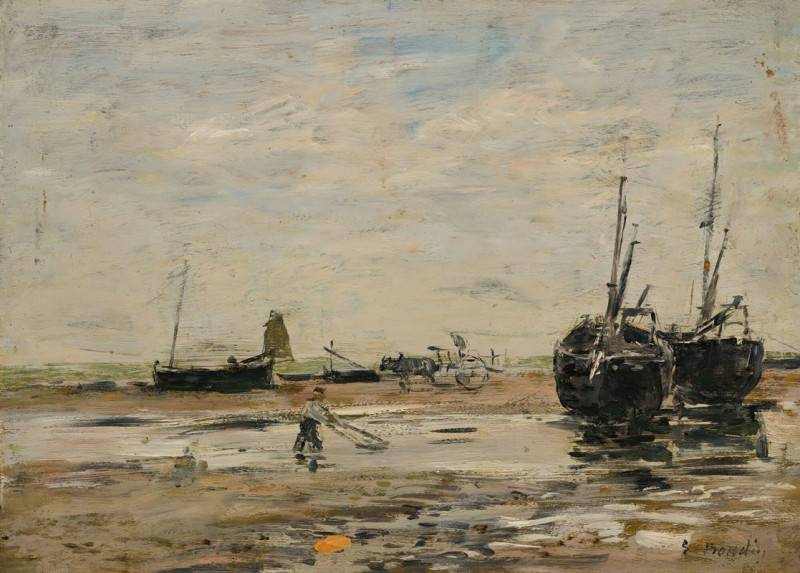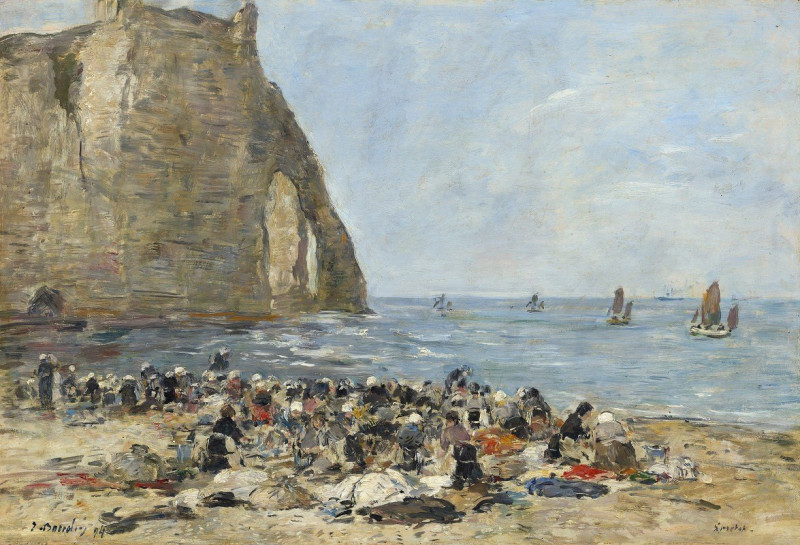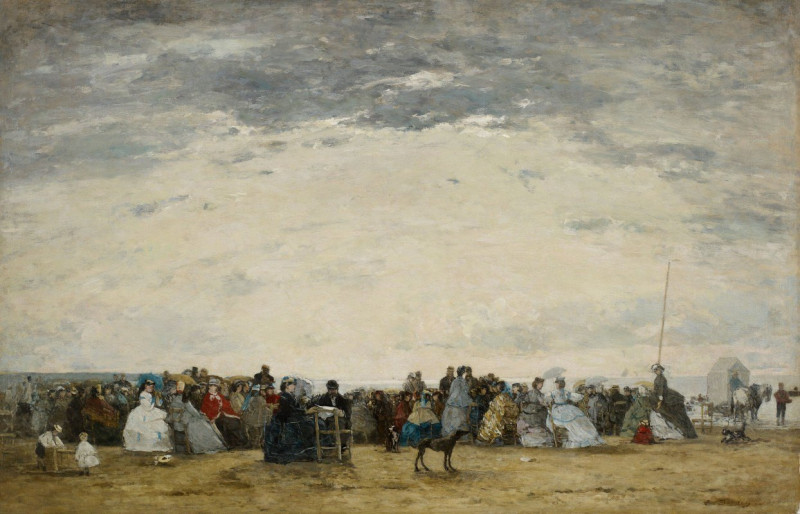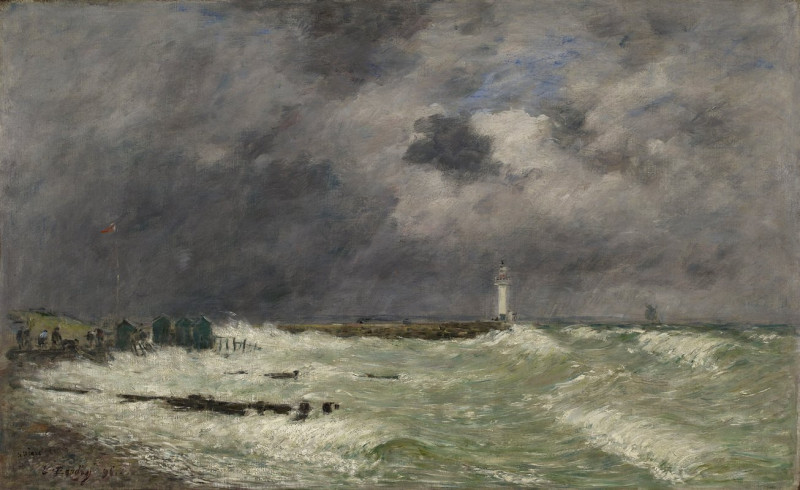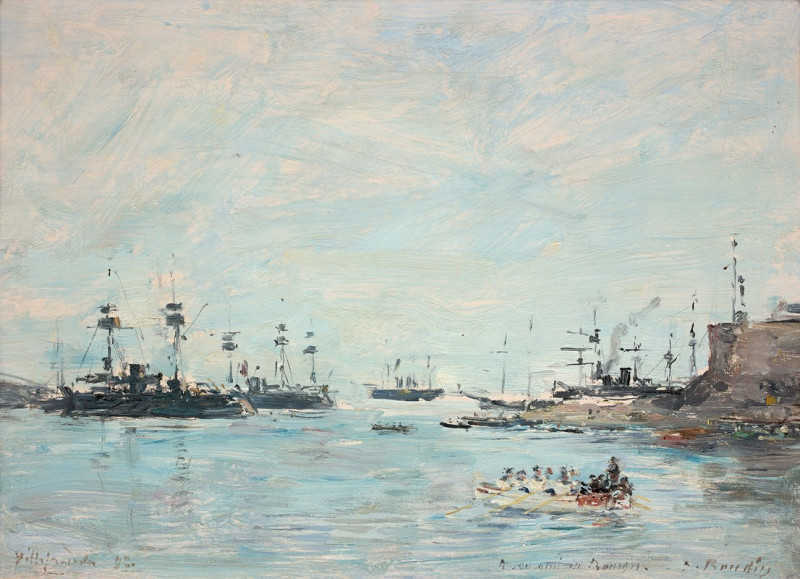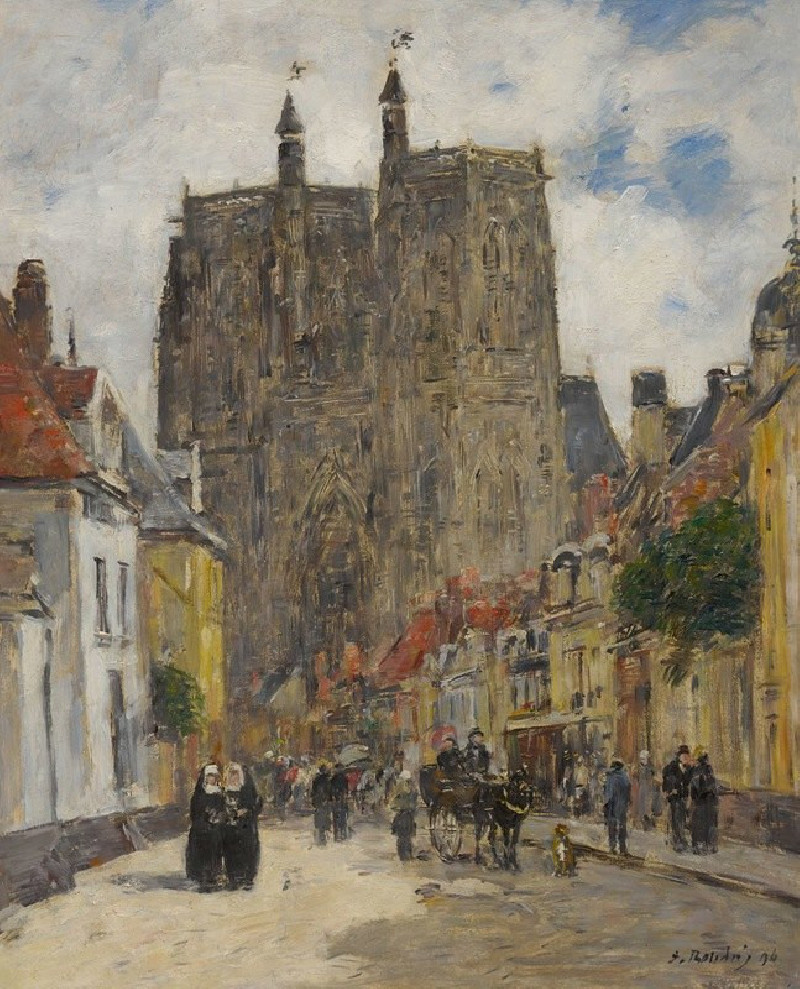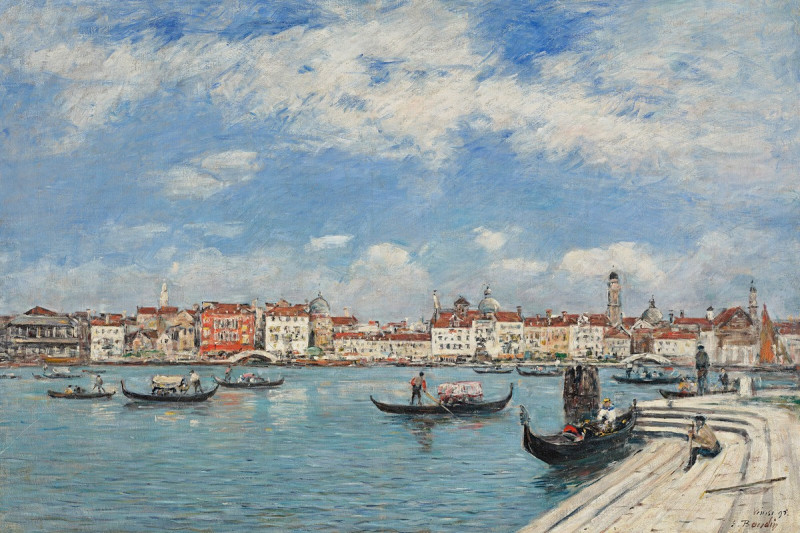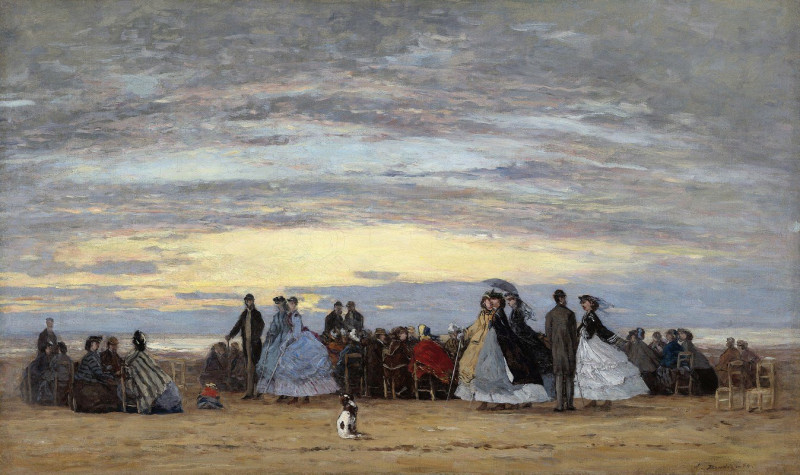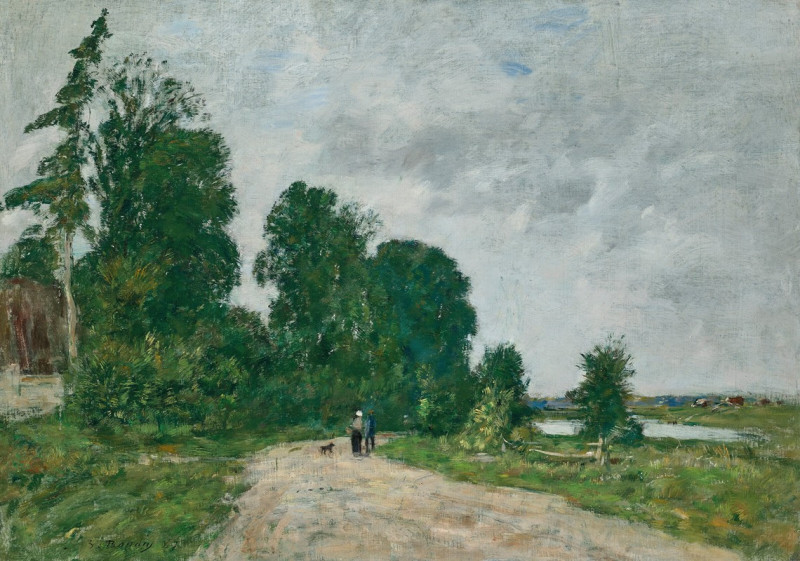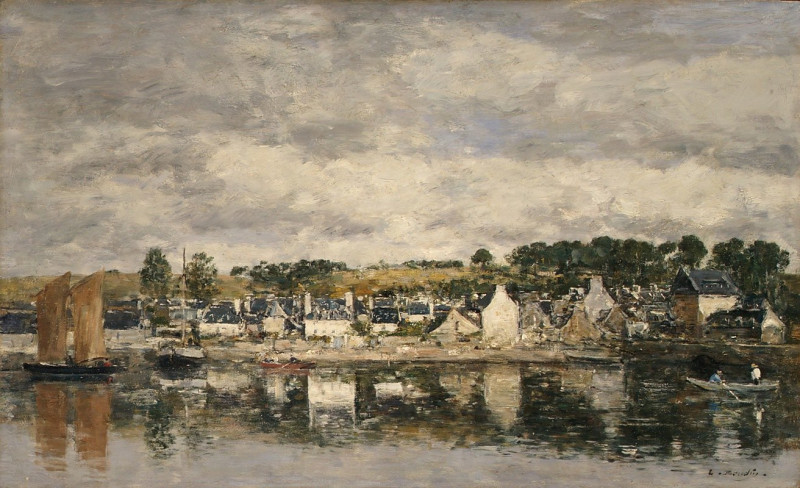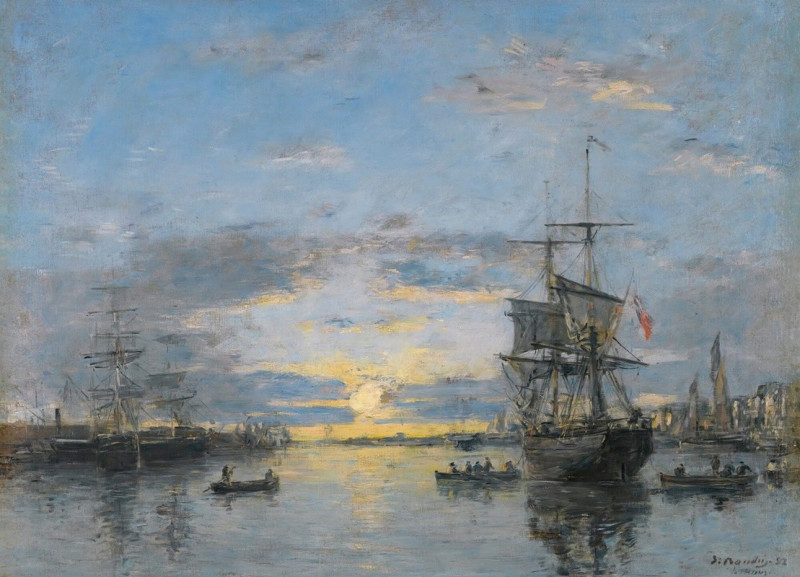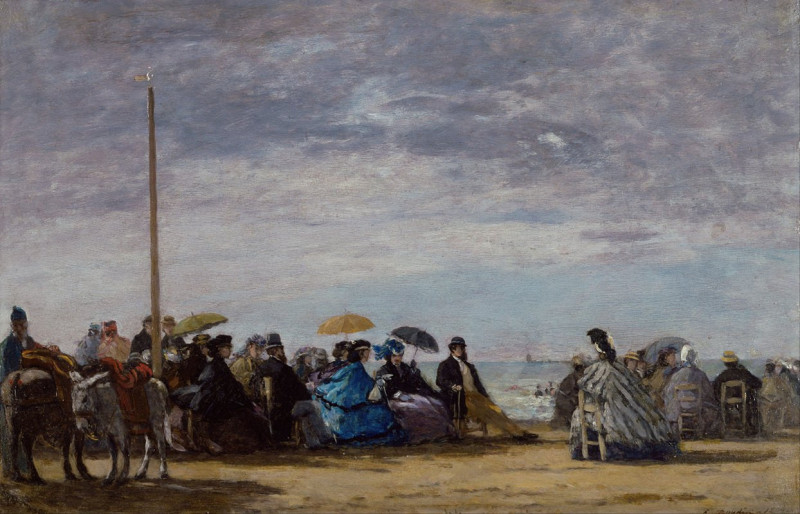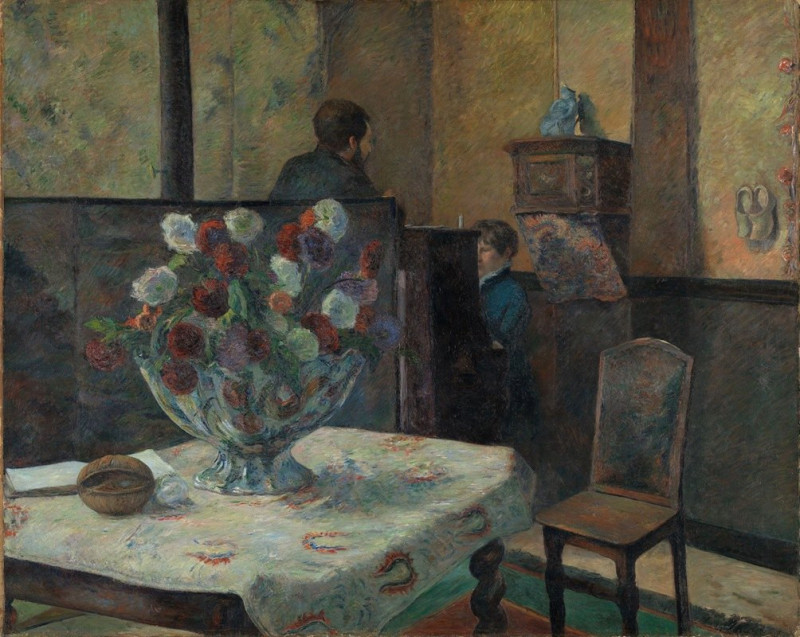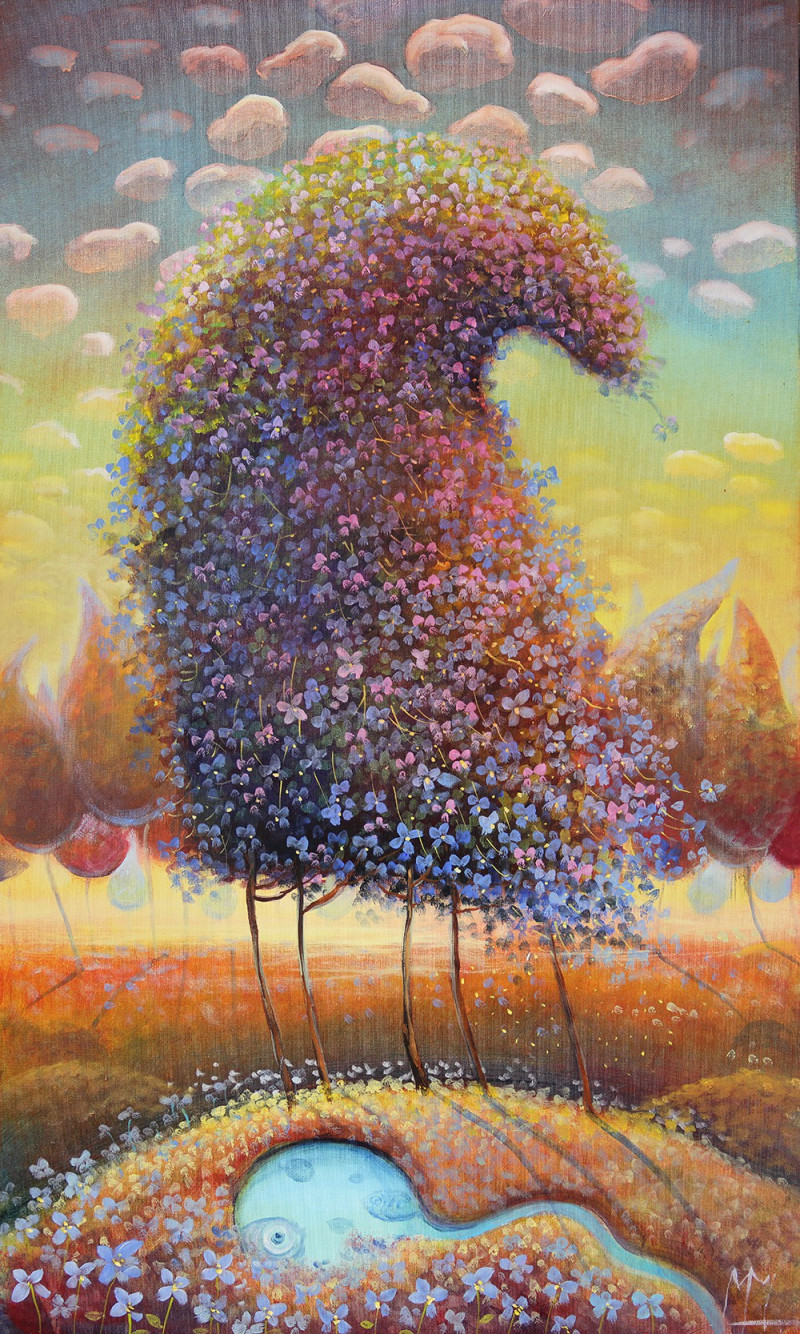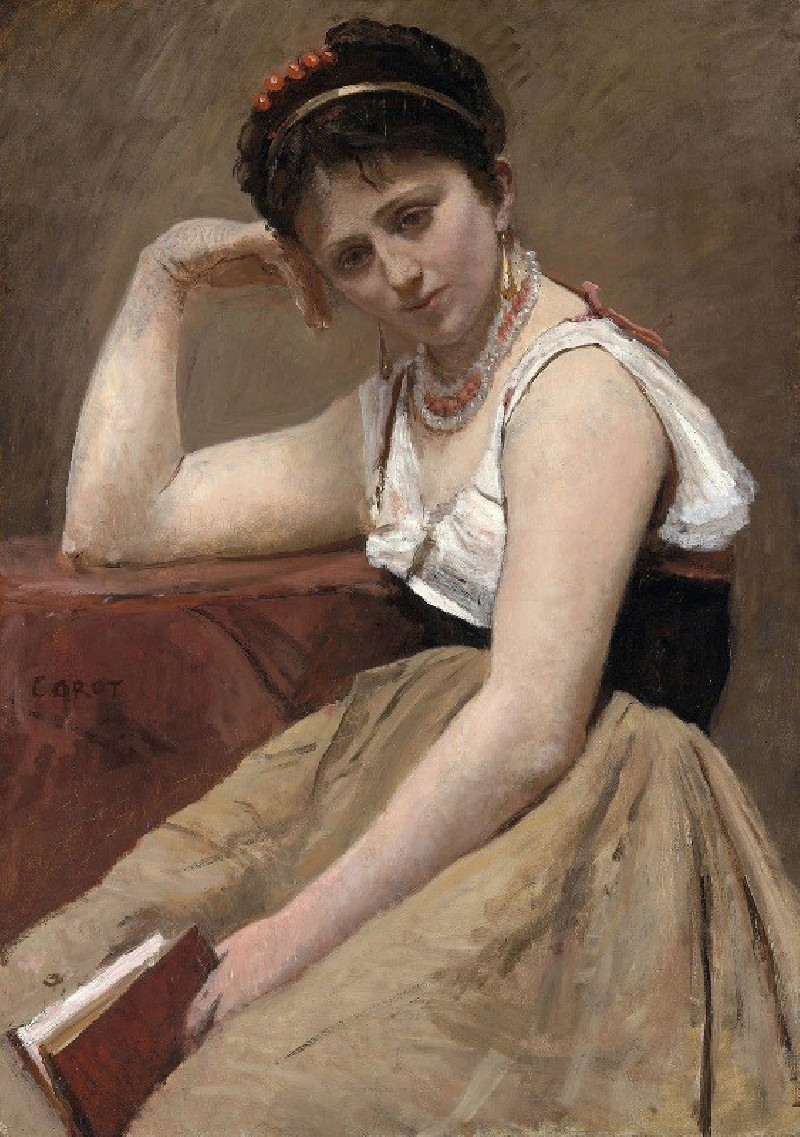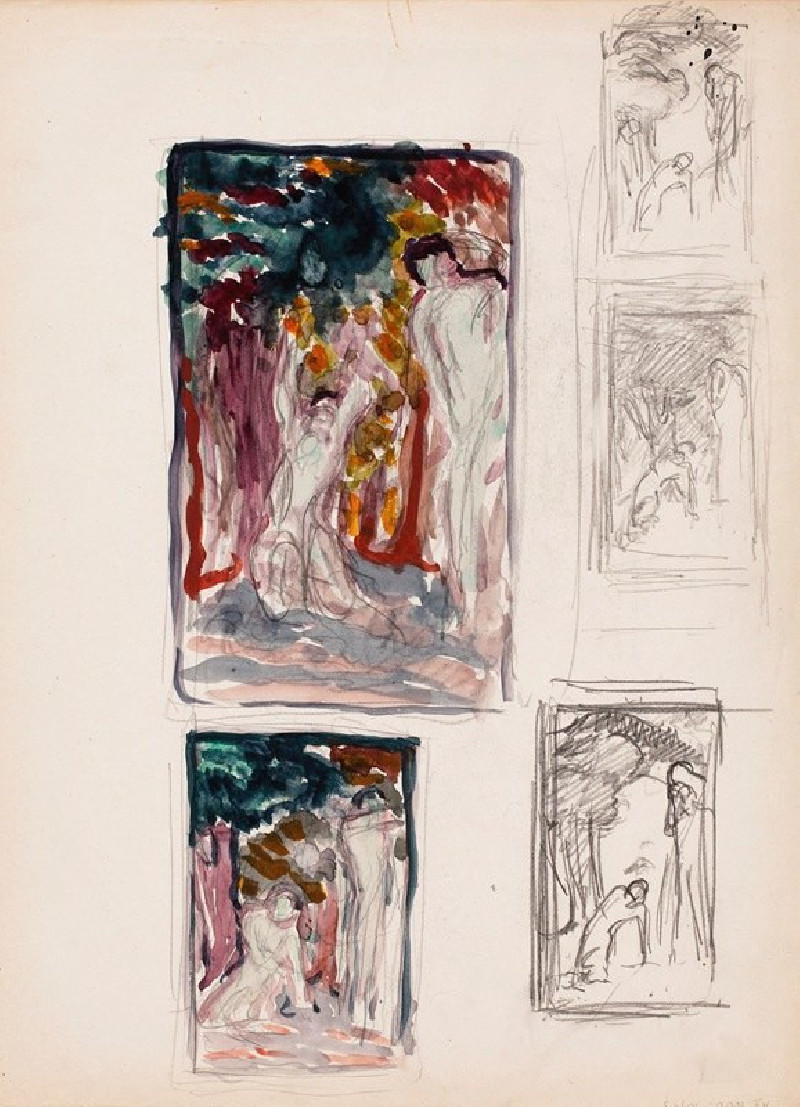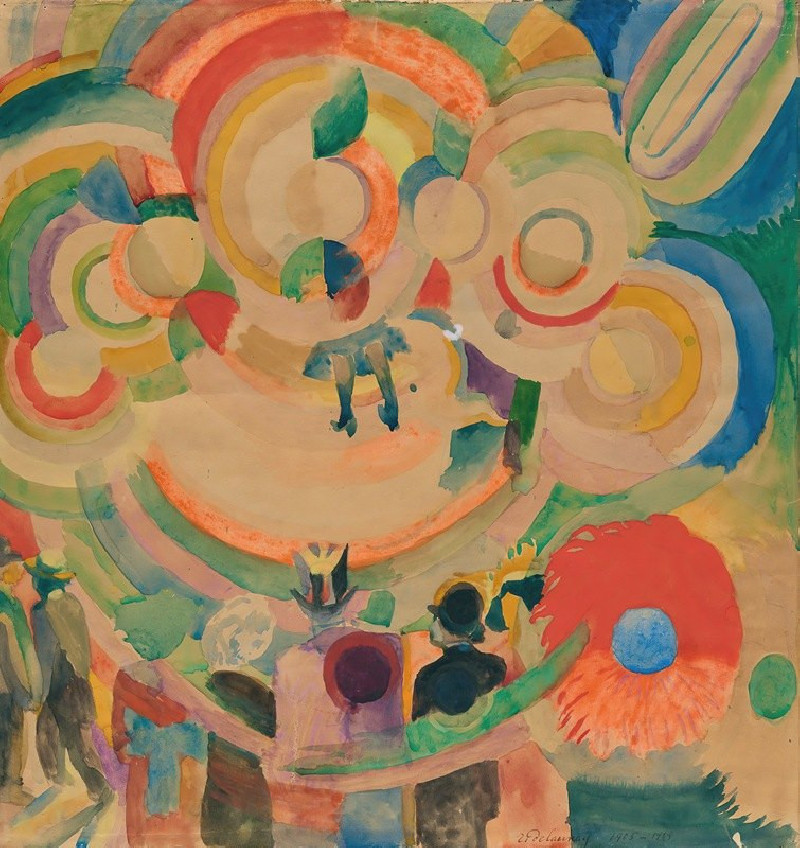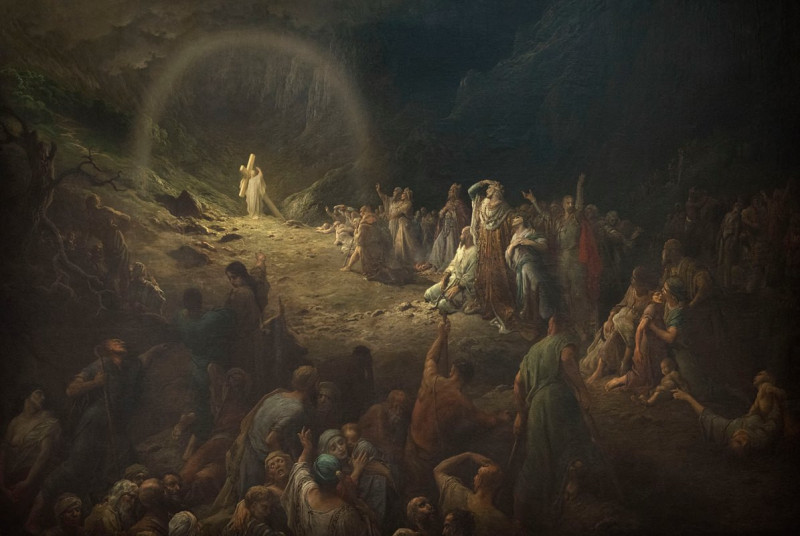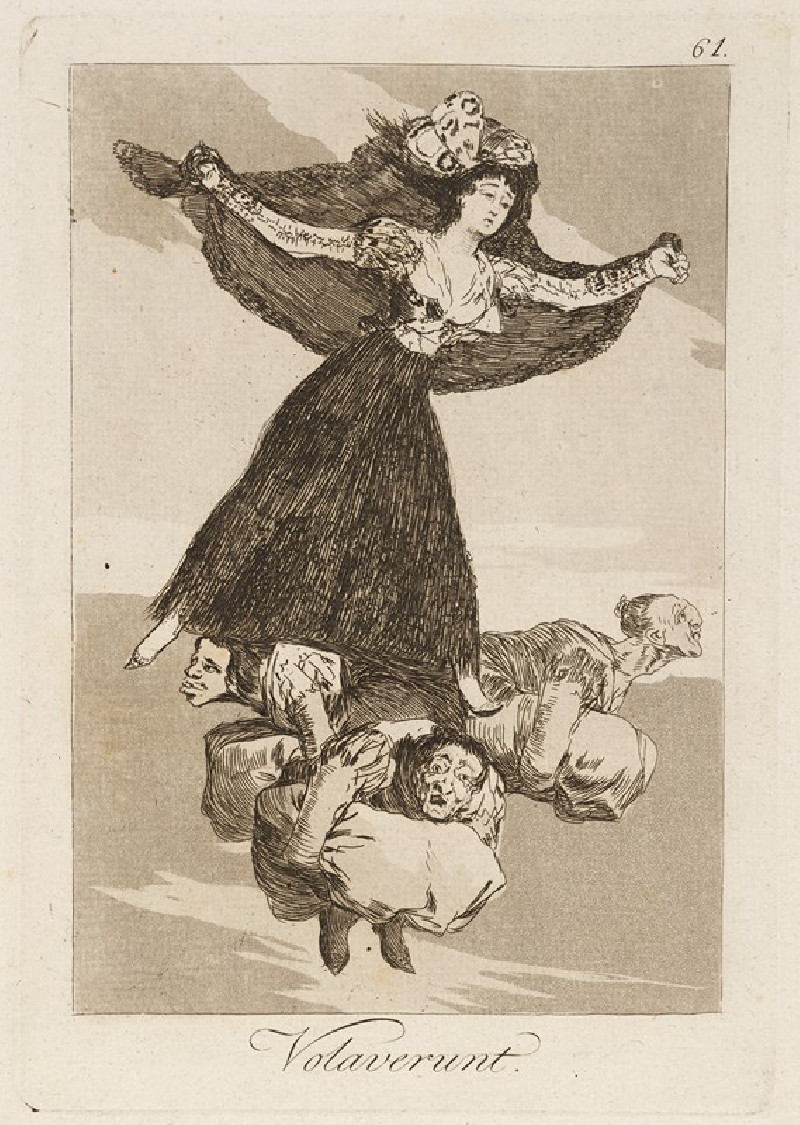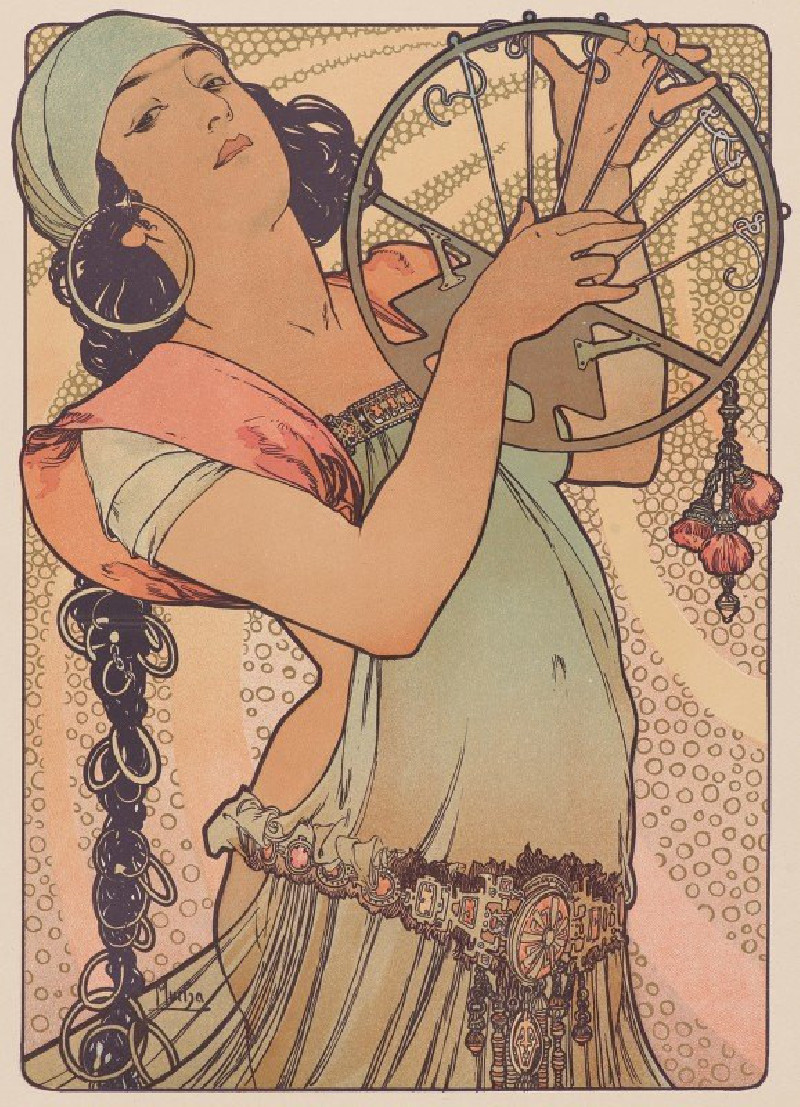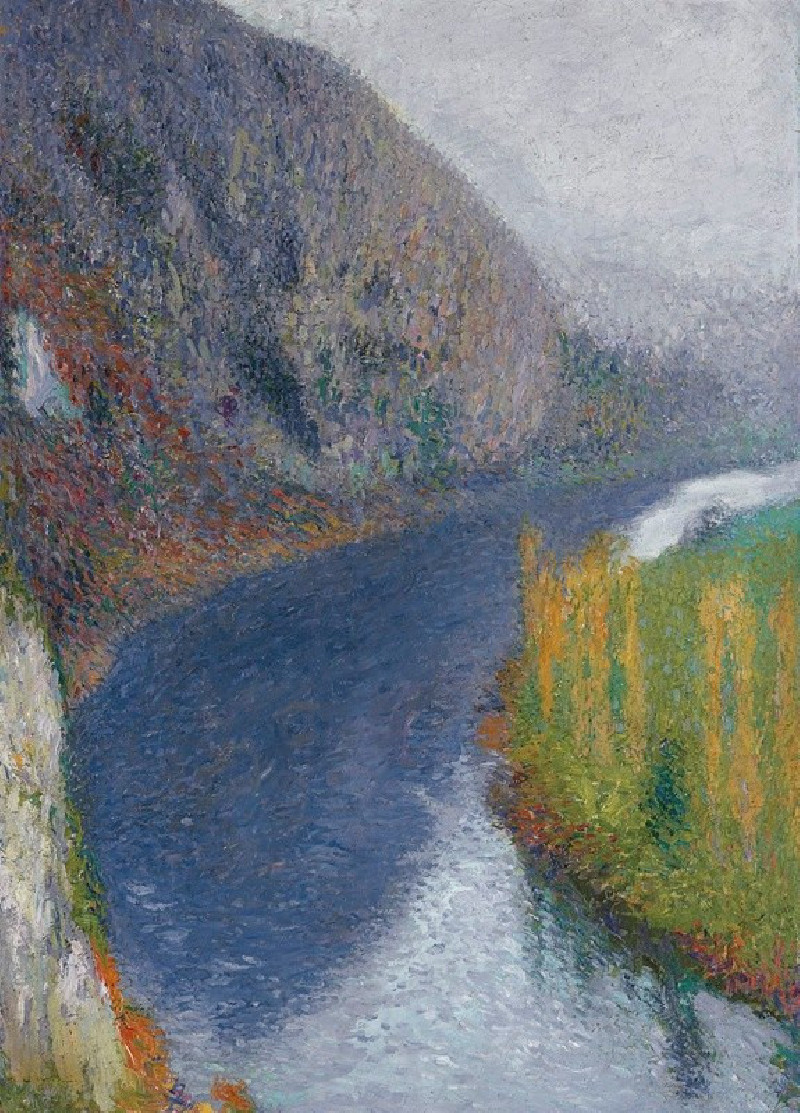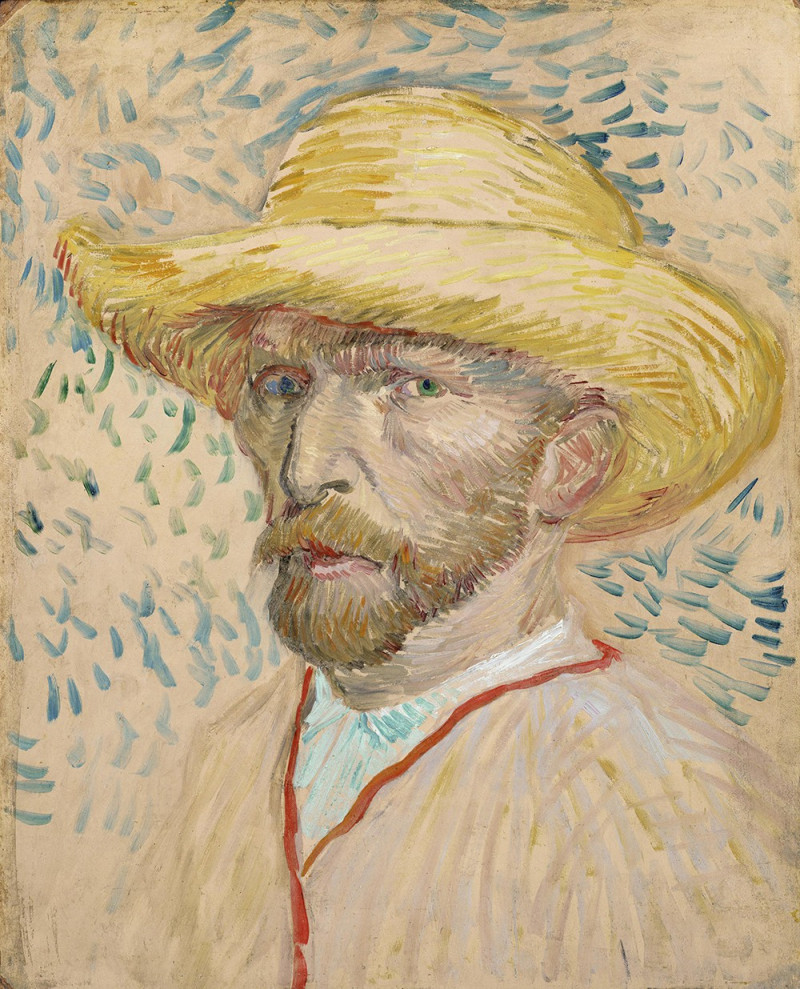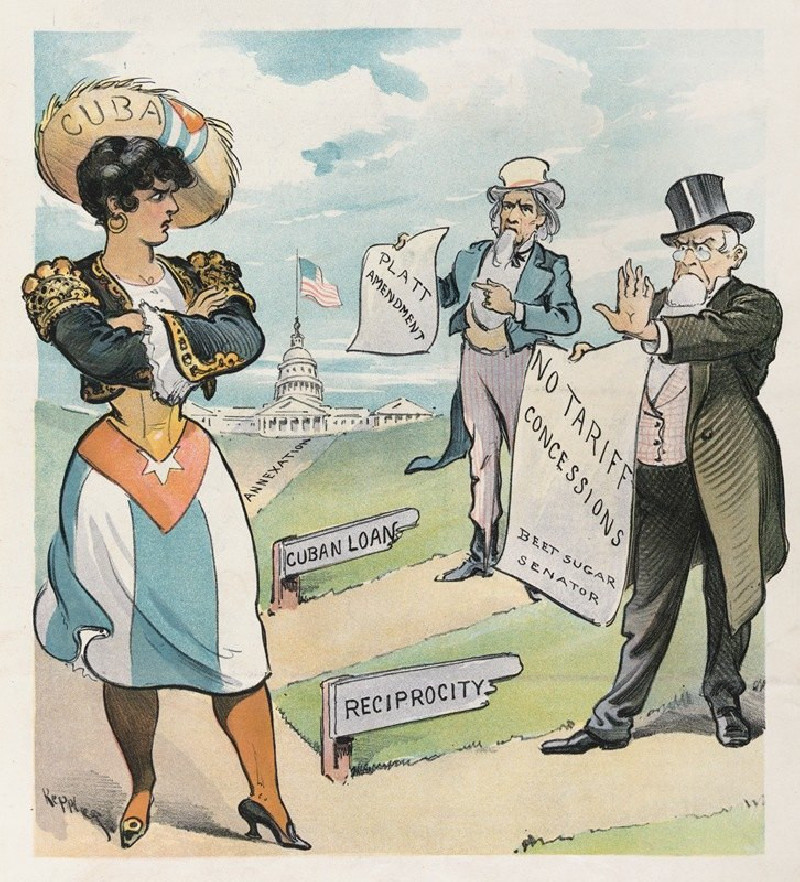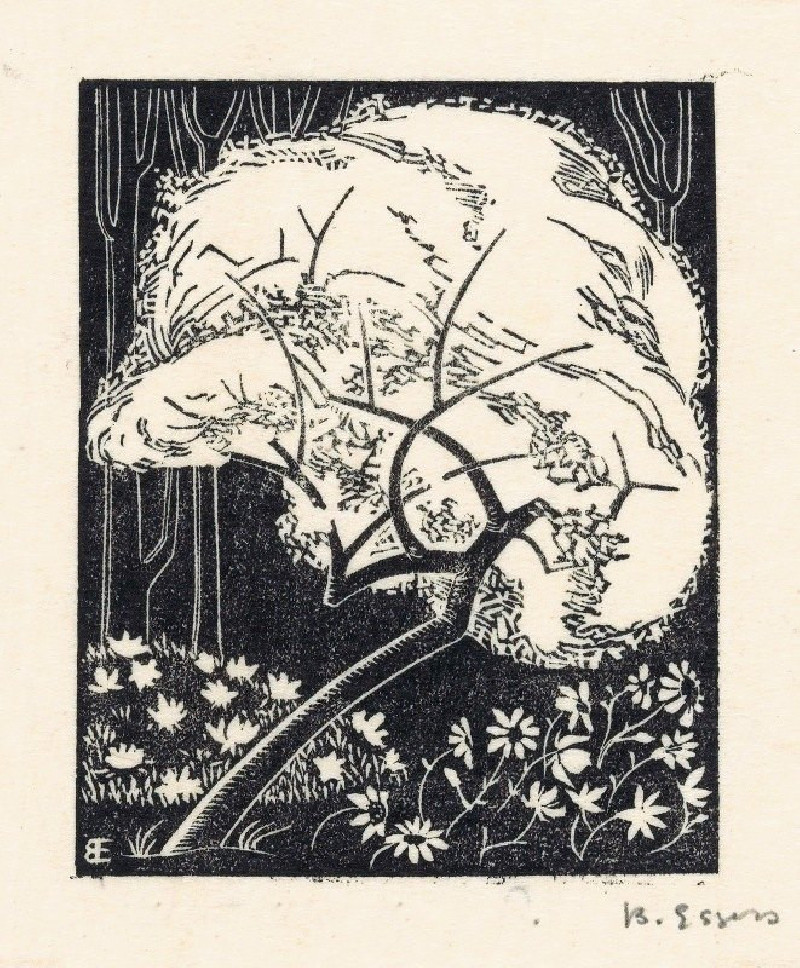Le Port De Trouville (1891)
Technique: Giclée quality print
Recommended by our customers
More about this artwork
Eugène Boudin's "Le Port De Trouville" is a vivid portrayal of the bustling port of Trouville, France, in 1891. In this painting, Boudin captures the dynamic atmosphere of the harbor with a masterful impressionistic touch. The scene is alive with small boats gently bobbing on the reflective water, hinting at the mild activity of a busy port.The smokey grey clouds blend into an overcast sky, suggesting an early morning where the quiet of dawn is just beginning to give way to the day's activities. The distant buildings and scattered figures provide a backdrop that adds depth and context to the maritime activity in the foreground. Subtle yet expressive brushstrokes convey movement and light, giving the viewer a sense of the fleeting, changeable conditions of the scene.Set against a soft, muted palette, Boudin’s work not only showcases his skill in capturing maritime landscapes but also reflects his ability to evoke the mood and atmosphere of a northern French port.
Delivery
Returns
Eugène Louis Boudin (12 July 1824 – 8 August 1898) was one of the first French landscape painters to paint outdoors. Boudin was a marine painter, and expert in the rendering of all that goes upon the sea and along its shores. His pastels, summary and economic, garnered the splendid eulogy of Baudelaire; and Corot called him the "King of the skies".

